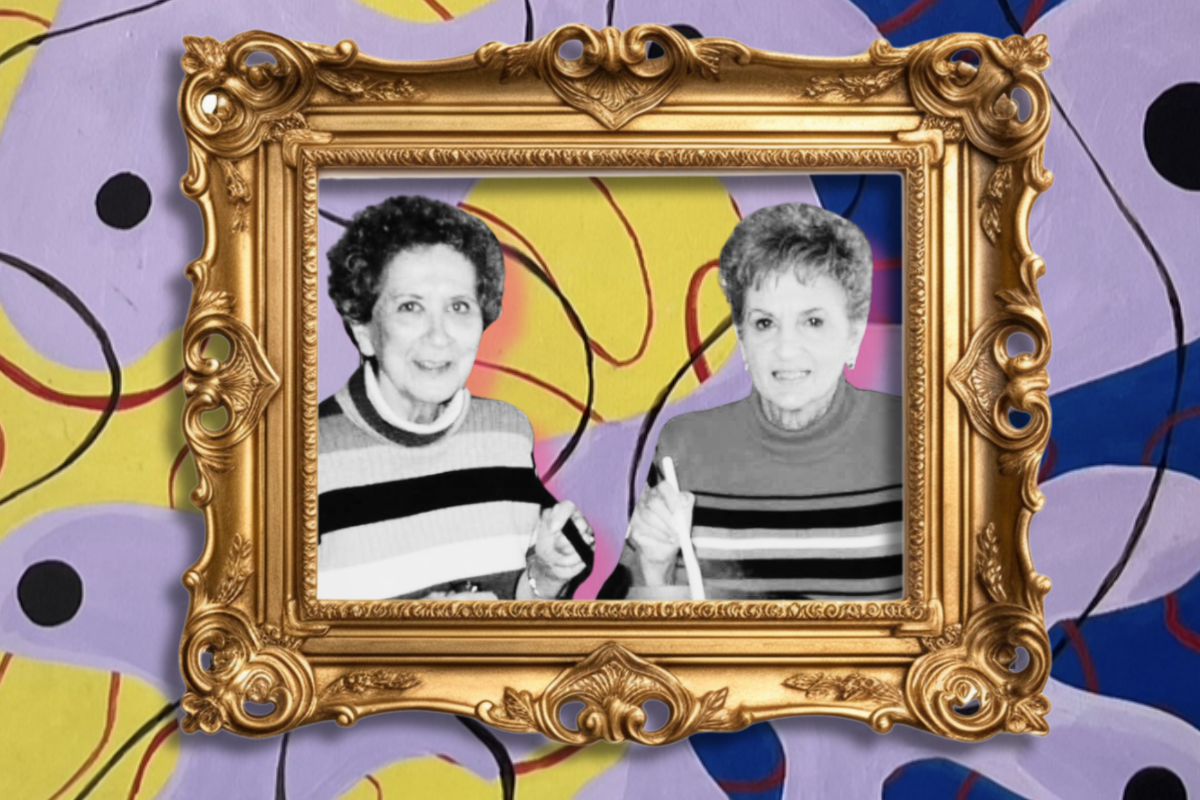I will never forget when my Grandma Rose introduced us to her long-term boyfriend. She was over the age of 80 and referred to him nonchalantly as her “lover.” And while her unapologetic phrasing left little to the imagination, we were so happy for her that she found love.
Grandma Rose had been single for many decades, after divorcing my grandfather in the early 1960s — a time when such things were unthinkable. She had no tolerance for romantic relationships that didn’t fulfill her, including in ways that I would prefer not to have heard about.
An independent art teacher living in New York City, she had been dating for decades, never giving up on love. She would even find dates through the newspaper when she would come visit us in Seattle in the ‘90s. She also found plenty of time to do art projects with us, play endless rounds of Boggle and Scrabble, introduce us to disgusting health foods and kvell about her love and pride for us all.
She taught art right up until she died two years ago at the age of 95. And she also taught me the art of being an outspoken, chutzpadik, DGAF bubbe. She was a fierce, passionate woman bursting with life, teeming with all the beautiful, hilarious, sometimes petty or even annoying contradictions that have come to represent to me the pinnacle of Jewish femininity.
As a writer, there are so many moments when I find myself lamenting the lack of recognition I’ve always yearned for, and then beating myself up for having an ego. Then I remember my Grandma Rose, who had such a huge, diverse and beautiful portfolio of work from a lifetime of painting and sculpting and collaging (and teaching), but it was never enough. This remarkable, confident, fiercely independent older woman would routinely bemoan never having her work featured in a major museum, and always hungered for more. She felt downright entitled, and she would complain about it a lot. She was right.
It’s humbling to see women who embody so much ferocious, maternal love, who are capable of approaching life with so much unapologetic vulnerability. They are unafraid of being perfectly imperfect, and I can’t imagine a better antidote to the extreme aaffect of “chillness” that pervades our society today.
I used to be so embarrassed at restaurants when my Grandma Rose would violently wave her hands overhead the very moment she wanted a check, or when a wait of more than five minutes at a trendy restaurant in Manhattan would cause her to furiously exclaim that we would be taking our business elsewhere.
Now, I would give anything to sit and soak up the wisdom of her audacity, her total and complete lack of chillness for even one more second. Whenever I notice a certain kind of chutzpah in my own actions (when it doesn’t cause harm to others, of course, as bubbes aren’t perfect all the time), I try to remember where I get that from.
I am fortunate to have one living grandparent left. My beloved Grandma Bevy lives a life in many ways quite opposite to my late Grandma Rose; she lives in a gated community in Boca Raton, Florida, and enjoys spending her days playing cards with her girlfriends. Though her husband, my wonderful Grandpa Lenny, died 26 years ago, she remains devoted to him and his memory.
During a recent visit to my Grandma Bevy’s place in Boca (where she is also still independently living at 91), in between being absolutely stuffed with food — in ways that only bubbes will fanatically insist upon for their grandchildren — we visited the pool at her country club.
I couldn’t help but laugh as she stopped random women entering the pool to compliment them on their bodies and strike up a conversation; it would’ve been weird in any other context, but from a bubbe, it was a warm hug.
Both of my grandmas are so different, and yet, they both share such a ferocious, loving, independent, Yiddish-laden panache that is so characteristic of Jewish women from New York. They each carry with them the pain and resilience of belonging to Jewish immigrant families; they both came from such humble beginnings, and through a lifetime of hard work, they each made for themselves lives they could be proud of.
Sometimes, there are certain attributes of the quintessential bubbe that feel generational. Or at least that’s what I thought before I started witnessing my own mom, and the other Jewish aunties that I grew up with, transition into their early bubbe eras.
My mom can often be found on FaceTime with any of my little nieces and nephews, performing puppet routines that are so bizarre, you wonder how this woman spent her entire career in corporate marketing.
And yet, it feels only fitting for a Jewish woman who has always exhibited such deep love and protectiveness of her family, who carries the torch of ferocious maternal strength, independence, Jewish eccentricity and joy. It is the inevitability, the birthright of the Jewish bubbe.
May each of us, in any of our moments of pain, of feeling “too much” or “not enough,” recall the all-encompassing joy, liberation and wisdom of the loving Jewish bubbe that resides within us.








